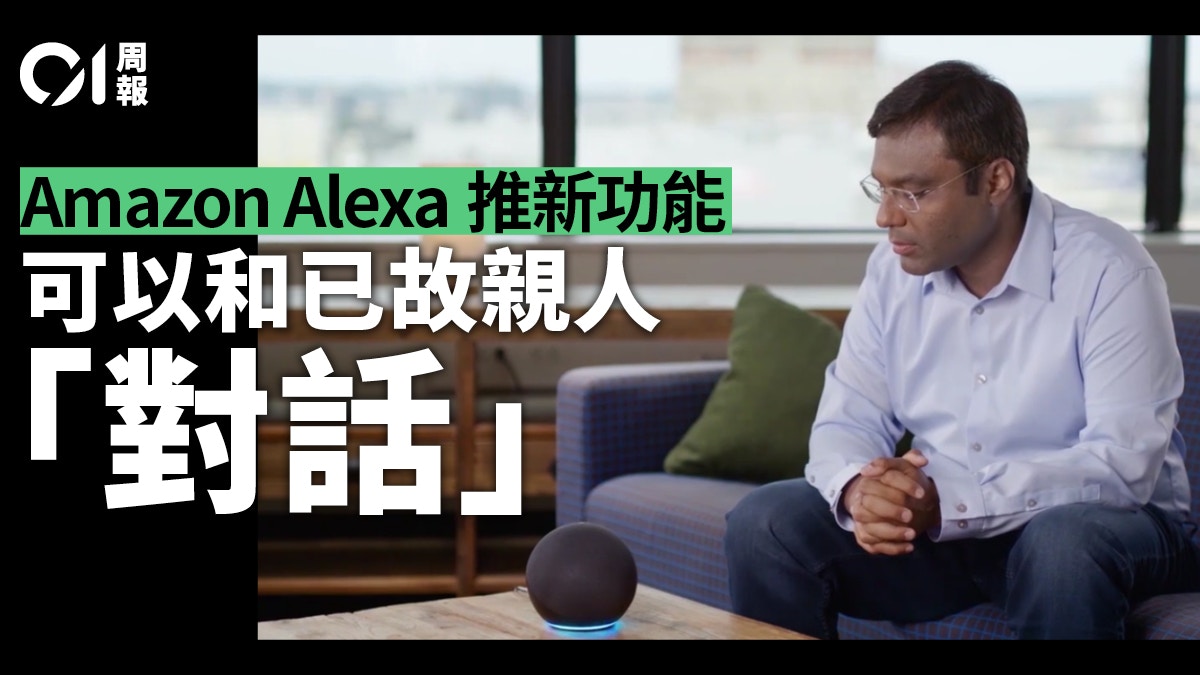Tech giant Amazon held its annual developer conference, re:MARS, last week to introduce the development of AI applications in machine learning, automation, robotics and space.
A demonstration video was played at the meeting.
A child asked a child-themed version of the Panda-designed smart voice assistant, "Alexa, can grandma continue to tell me the story of The Wizard of Oz?" Alexa answered "OK" with its preset voice. , and then changed to another voice that sounded more human, and read the plot of the cowardly lion seeking self-confidence.
Alexa Chief Scientist Rohit Prasad introduced at the meeting that Alexa only needs less than 1 minute of recording content to be able to imitate a certain voice: "The way we achieve this is to define the problem as a speech conversion task, not a speech. generate path."
Amazon has developed voice synthesis technology in the past that allows Alexa to mimic the voice of basketball star Shaquille O'Neal or comedian Melissa Mccarthy.
The practice at the time was relatively backward, requiring someone to record a large amount of audio for a long time.
In contrast, Alexa's new voice imitation feature is said to be based on the company's recent advances in text-to-speech conversion technology, which can generate high-quality, realistic voices with less data.
Alexa Chief Scientist Rohit Prasad introduced at re:MARS 2022 that the company is developing AI to reproduce the voices of deceased relatives and friends, hoping to deepen the "human nature" of AI voice assistants.
(Amazon re:MARS 2022 YouTube clip screenshot)
For example, he claims that this advancement in AI technology could allow consumers to maintain "lasting personal relationships" with deceased relatives and friends: "While AI can't eliminate the pain of losing a loved one, it can definitely make memories last . . . We live in a golden age of AI, where our dreams and science fiction are becoming reality.” An Amazon spokesperson declined to say when the new feature will be available to consumers.
Amazon's announcement of Alexa's newest feature has also caused a lot of negative reviews on the Internet. It can be seen from social media Twitter that users have criticized the feature as "disturbing", "sick", or they do not want this feature. kind.
The source of this unease may be, as Tama Leaver, a professor of Internet studies at Curtin University in Australia, points out, in such applications, the lines between humans and machines are beginning to blur: "You don't remember, what is it with Amazon? or the voice of your grandparents or a deceased relative. In a way, it’s a bit like Black Mirror.”
Some scholars have pointed out that the use of AI to reproduce voices involves security and ethical issues such as fraud risks, informed consent, and ownership, and should be considered early before this technology is popularized.
(Replica)
Leaver also pointed out that Alexa's new features were made with informed consent.
Such use of the deceased's data, he said, "is both creepy and unethical because the deceased may not have thought that their data would be used in this way after death."
Subbarao Kambhampati, professor of computer science at Arizona State University, agrees: "For grieving people, this technology may actually be helpful, just as we look back and watch videos of the deceased. But it also has serious moral implications. Questions, such as is it okay to do this without the consent of the deceased?"
Some scholars and experts have pointed out that AI artificial voice may have safety and ethical issues.
On the security front, there are concerns that this technique could be used as an impersonation scam.
Rachel Tobac, CEO of security firm SocialProof Security, cautions that society is not ready for the risk that such voice technology could be exploited by criminals: "If cybercriminals can easily and reliably copy another person's voice with a small sample of voice, They can then use that speech sample to impersonate someone else, potentially leading to fraud, data and account theft, etc."
For details, please read the 323rd issue of "Hong Kong 01" Electronic Weekly (June 27, 2022) "
Amazon Alexa reproduces the voices of relatives and friends to recall the deceased or promote deception?
".
Click here
to try out the weekly e-newsletter for more in-depth reports.

